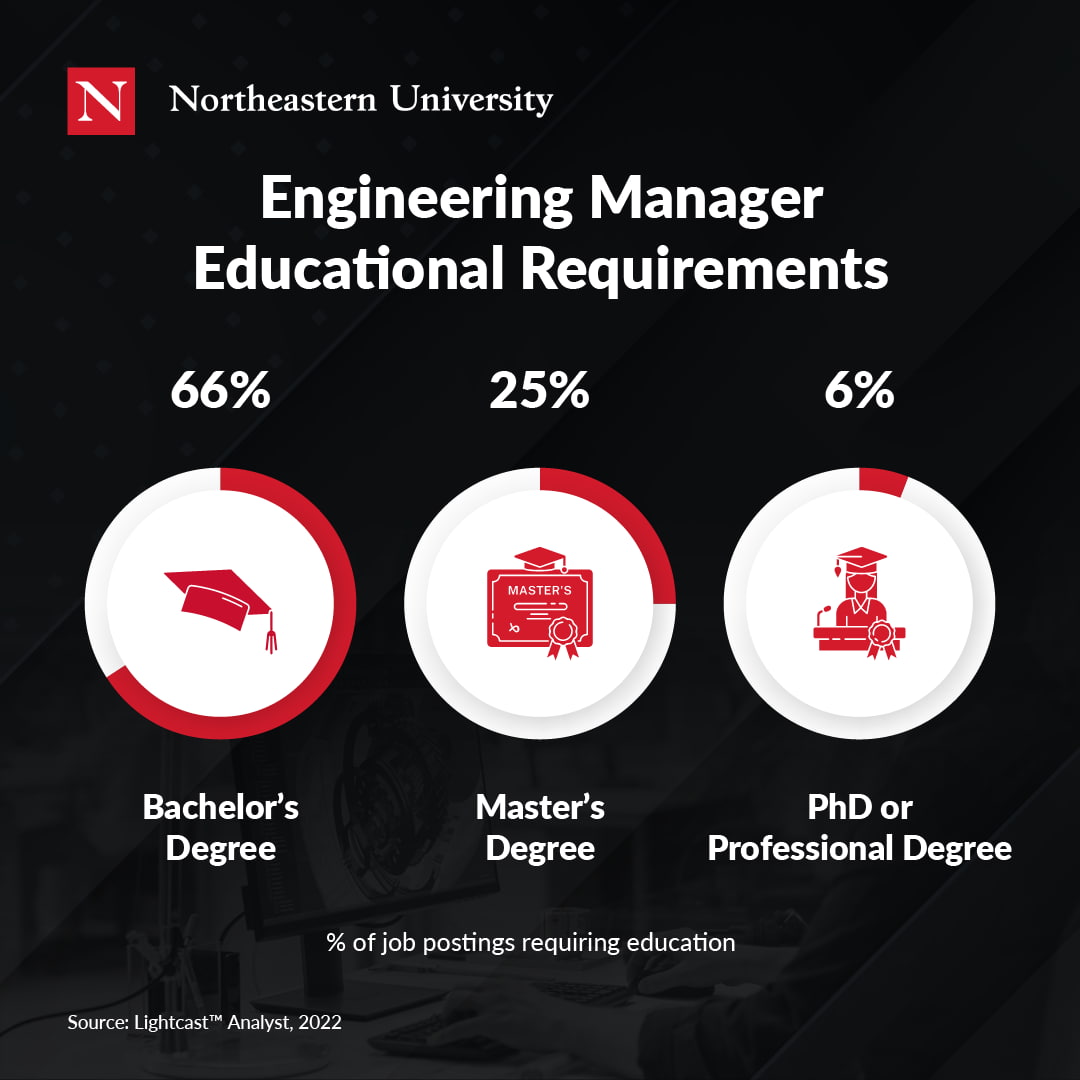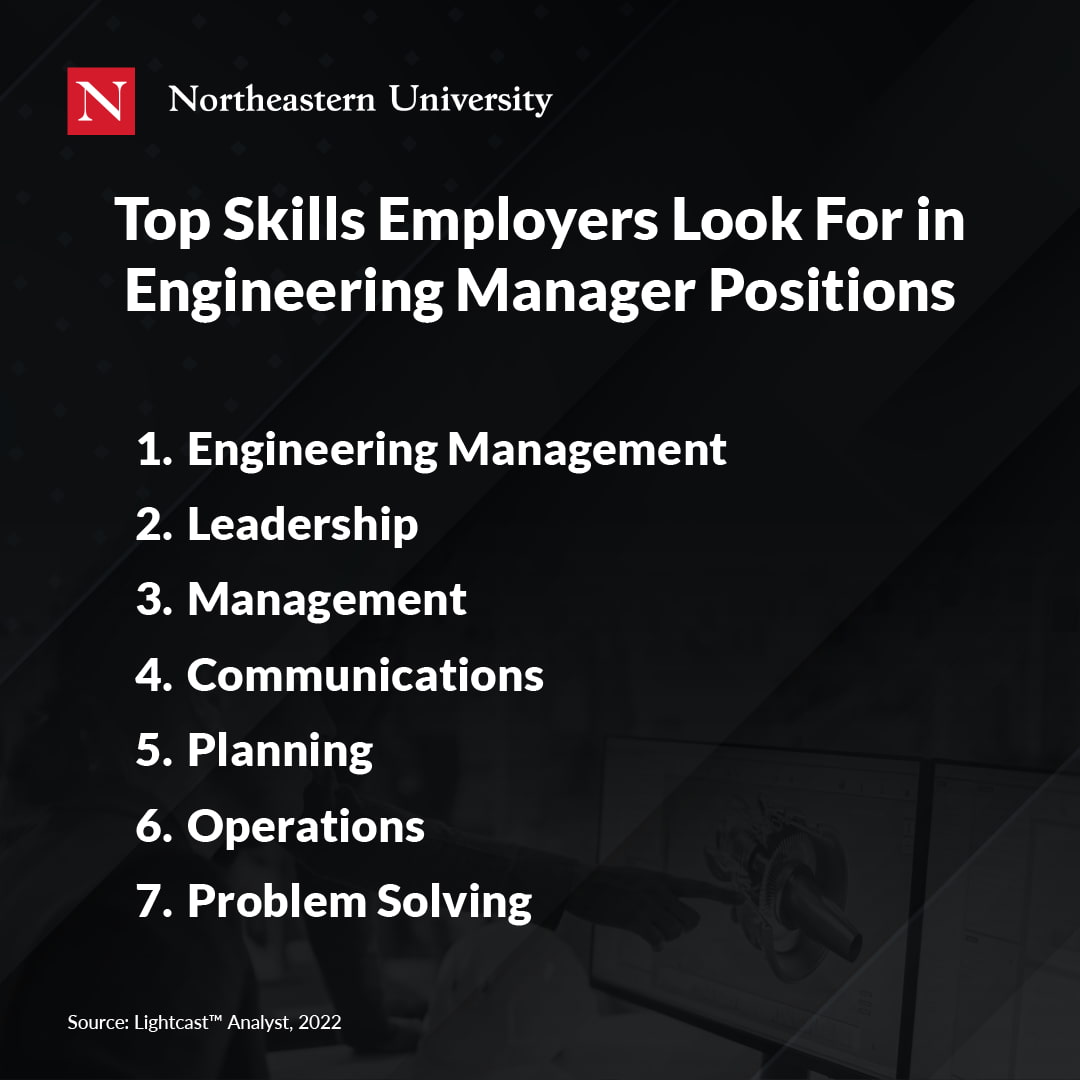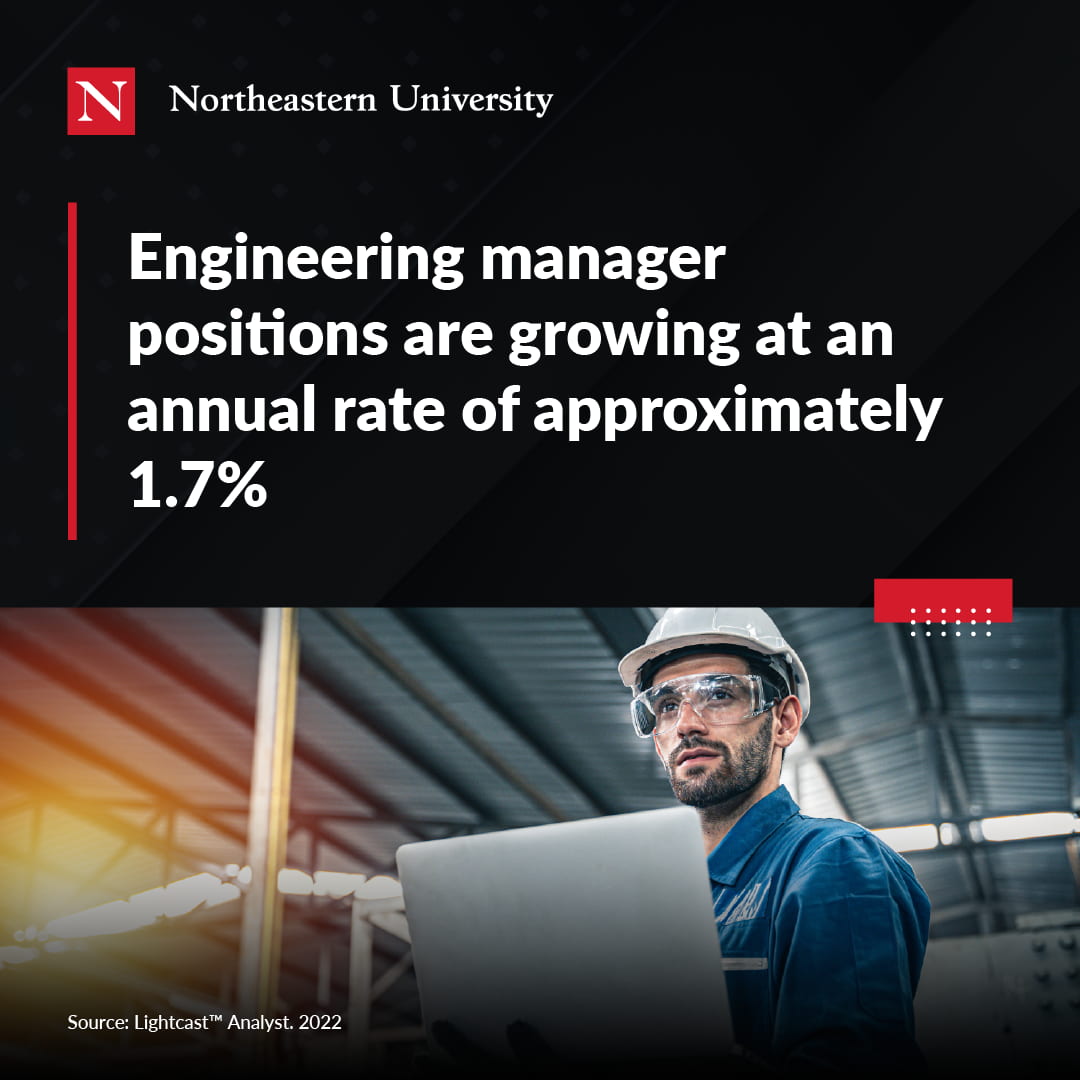Those looking to advance their engineering careers often face a common obstacle. While many advanced positions in engineering aren’t C-suite positions, most attainable advancements are in leadership and management. Since engineering employers don’t require these types of skills in entry-level positions, building a managerial skill set is essential to increasing your professional options long-term.
As new applications for engineering emerge, this growing field needs more leaders capable of managing challenging technical projects and producing successful outcomes. If you’re interested in advancing your career in engineering, here’s everything you need to know about what an engineering manager is, how to become one, and if this career path is worth pursuing.
What Is an Engineering Manager?
First and foremost, an engineering manager oversees an engineering team. Some of their responsibilities include planning, budgeting, training, and completing technical activities involved in the projects they oversee. Engineering managers need technical expertise in engineering to plan and execute projects, but require various leadership skills to effectively manage relationships with internal and external stakeholders.
Engineers works in a wide variety of fields, including, but not limited to:
- Manufacturing/industrial engineering
- Aerospace engineering
- Chemical engineering
- Software engineering
- Biomedical engineering
- Environmental engineering
- Nuclear engineering
- Mechanical engineering
- Civil and industrial engineering
- Agricultural engineering
- Electrical engineering
As a result, managers must develop expertise related to the specific industries and environments in which they work. Having a strong technical background, good communication skills, and a mastery of project management is essential to success as an engineering manager.
How To Become an Engineering Manager
For those interested in becoming an engineering manager, the required steps and tentative timeline depend on several factors. Educational background, current job market standards, experience, and industry-specific qualifications all play a major role in how long it will take you to obtain a managerial position in the field. As you explore your options, here are the most important engineering management requirements to keep in mind.
Education
According to the U.S. Bureau of Labor Statistics (BLS), entry-level positions in engineering management typically require a bachelor’s degree in engineering or a related field. Engineers work with data, equipment, machinery, and materials that are complex and, in some cases, potentially dangerous. Therefore, it’s crucial to have a foundational knowledge and applied skill set specific to engineering.

Earning an advanced degree could quicken the process of becoming an engineering manager, but there are other factors to consider before you can apply to job openings. While the best graduate programs incorporate experiential learning, internships, and mentoring from seasoned professionals, experience is an industry-specific requirement.
Background Experience
In general, engineering managers are expected to have five years of experience or more. If you hope to lead a team of engineers, it’s important to understand their day-to-day responsibilities and challenges, which are best observed while on the job. Engineering managers must also analyze problems and develop effective solutions which requires substantial experience working on real-world projects. They are expected to demonstrate proficiency in multiple disciplines, so they often start their career in other related engineering roles, such as a supply chain analyst, operations analyst, and quality assurance technician.
Skill Set
Developing transferable skills can increase your job opportunities and earning potential. According to government data, here are the top skills employers list in engineering manager job postings.

1. Engineering Management
Gaining relevant experience as an engineering manager is, of course, crucial for professionals who want to obtain their first managerial position. Employers want to see evidence that you can supervise operations and teams, make technical and strategic decisions, and carry out successful projects from start to finish. Consider taking on small leadership roles within your current role to show initiative, leadership capabilities, and your potential as a manager.
2. Leadership
Leaders are responsible for motivating teams and delivering positive project outcomes. To accomplish this, you must be comfortable communicating with diverse groups of people, listening to various ideas and concerns, and recognizing the strengths and weaknesses of proposals. Effective leaders are skilled at providing clear direction, letting others act on innovative ideas, and offering training to address skills gaps within the team.
3. Management
General business management skills are beneficial for understanding how to leverage team expertise to achieve specific goals. It’s important to demonstrate good time management, delegation, organization, collaboration, and conflict resolution skills. Management skills don’t have to be developed in managerial roles. Take lead on a project, take on administrative responsibilities, or organize an organization event. All of these show prospective employers that you are management material.
4. Communications
Good communication skills are essential for every job. As an engineering manager, you’ll routinely communicate with technicians, senior managers, supply partners, regulators, clients, and other stakeholders. To succeed, you must be skilled at assessing what’s at stake for each of these parties and managing their expectations. Earning a degree in engineering should aid in developing these skills by conversing with fellow students and faculty members.
5. Planning
Planning is a core part of engineering management. Prospective managers must be skilled at executing company plans to meet various organizational goals. Prioritizing tasks, choosing solutions, and allocating resources are essential aspects of planning that ensure projects and processes are completed on time and on budget. If you’re still an entry-level engineer professional, try to take initiative in the planning process of various projects to add valuable experience to your resumé.
6. Operations
To effectively manage operations, engineering managers must understand the ins and outs of a company’s value chain and how to optimize it. Employers want managers who can evaluate costs, efficiency, and productivity and put measures in place to reduce risks without compromising value. If you’re an engineer that works in operations, including this experience and competency on your resumé could give you a leg up on other managerial applicants.
7. Problem Solving
Engineering is all about using technology to create innovative solutions. Whether it’s developing a consumer product, safer equipment and processes, or more efficient materials, engineering focuses on improvement. As an engineering manager, you’ll need problem-solving skills along with a strong affinity to research, quality testing, and analytical skills.
Qualifications
Obtaining trusted credentials is a great way to stand out to employers. While becoming a Licensed Professional Engineer (PE) is optional, it can increase your career opportunities by communicating your level of industry competency to prospective employers.
The National Society of Professional Engineers oversees licensure, which is often required for government jobs, instructors, managers, and private consultants. Only PEs are authorized to submit engineering plans to public authorities or lead engineering work performed by others. Therefore, this certification is a highly recommended step to becoming an engineering manager.
Is a Career as an Engineering Manager Worth It?
If you’re still deciding whether a career in engineering management is right for you, it’s worth considering the possible value of this career change. Here are three factors you should take into account when choosing an engineering career path.
Salary
Engineering management is an advanced role that requires a degree and years of industry experience. Since education is a substantial financial investment, it’s important that a career in engineering management offsets this cost. According to a government report, the median annual compensation for engineering managers is $135,040. Working in bigger enterprises or increasingly specialized roles, however, offers opportunities to earn well above the median as a seasoned manager. This high earning potential can be comforting to those who might worry that advancing their education isn’t worth the investment.

Job Growth
There is plenty of industry growth in the field of engineering. While data shows that engineering manager positions are growing at a rate of 1.7 percent annually, the constant evolution of STEM industries is forcing organizations to hire more technical leaders who are equally proficient at business leadership and operations management. If you’re just entering the field, you can feel confident in the job prospects for graduates in the coming years with this projected growth over the next ten years.

Career Advancement Opportunities
An engineering management career is flexible and can lead to even higher-paying positions. For example, veteran managers often go on to become executives and directors at the highest levels of an organization. This trend isn’t the same across the board, however. Your industry and employer play a major role in both earning and career advancement. Organizations that require more skills, education, and experience typically offer more competitive salaries and larger-scale projects. As a result, more engineering professionals are trying to gain these requirements at an early stage in their career to ensure faster career advancement.
Take the First Step to Becoming an Engineering Manager
An engineering management career has a lot to offer those who love problem solving, combining a range of skills, and inspiring others. Whether you already have engineering experience or you’re looking for an entirely new career path, leadership training can take your job prospects to the next level. Consider enrolling in a master’s degree program, like Northeastern’s Master of Science in Engineering Management program, for a comprehensive education that can equip you with all the skills you need to succeed.
If you’re interested in becoming an engineering manager, check out our Master of Science in Engineering Management program to see how you can achieve your professional goals.






Related Articles
11 Data Science Careers Shaping Our Future
How Data Science is Disrupting Supply Chain Management
What Does a Data Scientist Do?